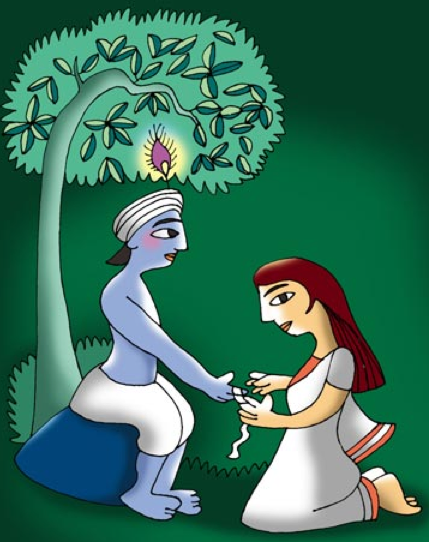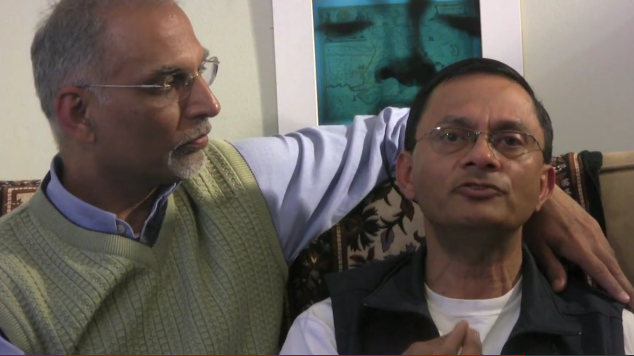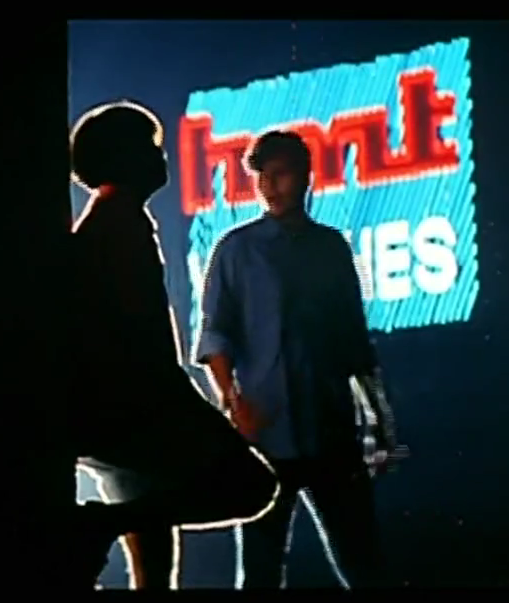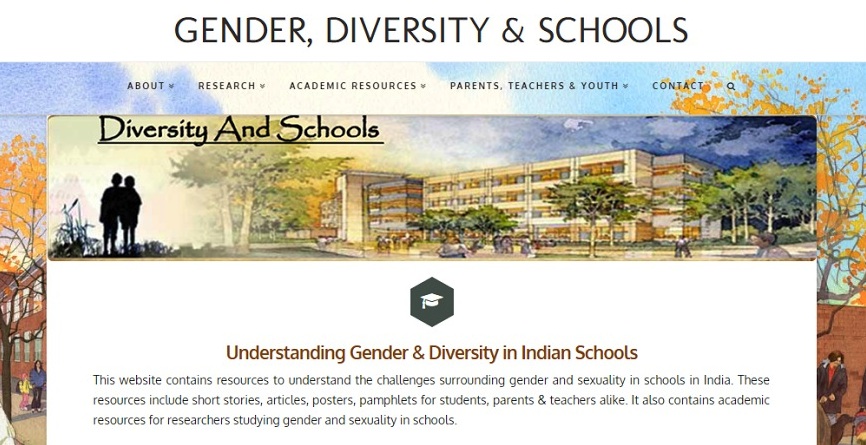No more Raksha Bandhan!

In a few days, men all over India will take a vow. A vow to protect their sisters. Raksha Bandhan, the bond of protection, is an Indian festival that celebrates the relationship between brothers and sisters. The central ceremony involves the tying of a Rakhi (sacred thread) by a sister around her brother’s wrist. This symbolizes the sister’s love for her brother and reaffirms the brother’s lifelong vow to protect her. Hindu mythology has several stories related to Raksha Bandhan. One of them involves the god Krishna and the princess of Panchala, Draupadi. Draupadi had once torn a strip of silk off her sari and tied it around Krishna’s wrist to staunch the bleeding from a battlefield wound. Krishna was touched by her action and declared her to be his sister, even though they were unrelated. He promised to repay the debt at the right time. (Source: Wikipedia.org)

Years later, Draupadi married the five Pandava brothers, sons of the Pandu, king of Hastinapura. The Pandavas lost themselves and their queen Draupadi in gambling to their cousins, the Kauravas, 100 brothers who were sons of Dhritarashtra, the king of Hastinapur and Pandu’s successor. The eldest of the Kauravas, Duryodhana ordered his younger brother Dusshasana to disrobe Draupadi in the assembly hall. The entire royal assembly of Hastinapura including King Dhritarashtra and other elders watched helplessly as Dusshasana tried to disrobe Draupadi. Draupadi pleaded to Krishna for help and Lord Krishna indefinitely extended Draupadi’s saree and protected her honor. Thus the small string of silk she tied to stop Krishna’s bleeding protected her honor at the most desperate time. From that day, Hindus started celebrating Raksha Bandhan, a day when brothers take vows to protect their sisters. Indian women have made significant progress since the time of the mythical Draupadi, but the more things change, the more they stay the same. There are thousands of modern day Dusshasanas all over India. Violence against women, both within the home and in public, is on the rise. Women are groped, molested and sexually and physically assaulted in public places, including buses, trains, sidewalks, bars, clubs and pubs. Countless incidents of rape and molestation have been reported in the past few years. Take a look at the staggering statistics tracked by Map4aid here.

One incident that shook the entire country happened recently in Guwahati. On July 12 2012, a young girl was molested, stripped and physically attacked by an unruly mob of twenty men outside a pub. Onlookers not only watched the horrific incident like the king of Hastinapur, Dhritarashtra, but eventually joined the mob. All of this was recorded on video by a local TV news reporter. Some of the molesters proudly posed for the camera, which speaks volumes about the ineffective and inefficient law enforcement system in India. The Assam government came under extreme criticism for failing to arrest the molesters and the incident caused national outrage. A few days after that incident, on July 25th, a 19-year-old girl was pushed out of a moving train in Karnataka by four men who tried to molest her [Another horrific incident happened in Mangalore between the time I started writing this and now]. And these are the incidents that get reported. Violence against Dalit women; lesbian, bisexual and transgender women; and violence in the name of community honour are grim realities in many of our lives; all acutely under-reported. Looking at the state of the country, isn’t it hypocritical of Indian men to celebrate Raksha Bandhan on one hand and perpetuate violence against women on the other? What happened to the vows they made all these years? I guess they never really meant it. I bet the Rakhi-tying ceremony, taking a vow to protect their sisters and all, are just attempts to make them feel macho and superior, nothing more. Festivals like this are another sexist attempt by the patriarchal Indian society to condition its men and women to believe that women are weaker elements of the society that need protection from men. Have you ever heard of a ceremony where a sister vows to protect her brother? If you think about it, the whole concept is fundamentally flawed. In a fair and equal society, why would women need men’s protection or vice-versa? Men love to think that women are beneath them; that they are vulnerable commodities that need protection. This also leads to the notion that any woman who is “unprotected” is everyone’s game. Single women in India (unmarried, divorced and widowed women) are constantly criticized, condemned, disrespected and harassed, even in the 21st century. Remember the Akeli ladki Khuli tijori scene from the movie, Jab We Met? We need more women like Geet to stand up to such attitude and behavior. There is no need for Raksha (Protection). All we need from men is respect. Respect for women, whether straight or queer, cis or trans, regardless of community, class, caste or religion. Respect for women’s rights and freedom. Respect for women’s choices and decisions. Respect for women’s spaces and right to exist with dignity and as equals in life’s journey. No “Raksha” Bandhan this year. Let’s start a bond of mutual respect – A respect bandhan!




Thanks for writing this, Shri. Even to begin with, it is an oppressive festival couched in some affective aesthetic. As you have rightly pointed out, enough of this partriarchal assumption and thrusting of “raksha” on women. Also, many of the men who are violent to women do not see anything incongruent between their continuing violence and something like Raksha Bandhan; for they are both violence acts – one blatantly so, the other is symbolic and made sickeningly sweet by custom. After all, the reasoning goes, you have to be tough when you have taken it upon yourself to protect. At another level, it is the ‘other women,’ those who drink, go to pubs, walk with boys on the street, etc., whom they target. Look at the Mangalore incident from the day before yesterday, where members of the Hindu Jagarana Vedike beat up a bunch of young men and women at a private party in Mangalore. I bet those thugs see no disconnect between such acts and notions of “raksha.” Sigh.
i came to this link via a fb news feed and watched the entire movie to see the context of the video scene from jab we met you posted.
this is what happens if a story is not completely read (or seen in this case). did you know what happens in the story subsequently and how she repents about how her situation in life for making foolish decisions. of course the truth definitely sounds bitter and that is why she gets back at the poor station master who was just stating facts. in the end, she needed shahid kapur to rescue her. the world is certainly better off without girls like geet.
@Chris: You completely missed the point.
1) In the movie, Kareena (Geet) misses the train because she steps out to bring Shahid back to the train (with a good intention). I don’t think there is anything foolish about helping others. Even if it that was foolish, both men and women make foolish decisions in life. There is no need to single out women.
2) The reason Kareena needs Shahid to rescue her (in the scene after) is exactly what the post discusses in detail. If men respect women, their freedom, their rights and treat them with respect, we don’t need “Raksha” from them.
3) The station master is a total moron. What kind of a person would threaten a girl, who is stuck at the train station and asking for help? Instead of doing his job, he starts scolding her for missing the train and then starts to describe what horrible things that could happen to her. Really? In what way is that helpful? Do you think men would be treated the same way in such a situation? If his intention was good, he wouldn’t have used words like “Mein mard hoon”, “Akeli ladki khuli tijori” etc.. Sexism at its best.
hello,
thanks for writing this. i agree with you, especially when you say that it is just another way for men in a patriarchal society such as india, and lets face it most of this world, to keep women believing that they are weaker, that they need protection from their brothers. I am a straight girl and i refuse to tie a rakhi, exactly because of this. we need to break certain traditional cultural rituals that reinforce such sexist thoughts in our society. if we keep on doing this, we keep on instilling values such as these in young girls. it doesn’t mean everything we do in certain cultures is right. i mean there are certain cultures believe that girls are donkey’s of the family. we need to move on people! especially now, since rakhi has become such a big corporate mass consumption thing. these corporations are capitalizing on this.
Hi Shri, (and others who hate Raakhi with the idea that it is a patriarchal festival),
I disagree with you. I don’t think the idea of tying the raksha bandhan is for the womenfolk asking the menfolk to protect them. It symbolises the eternal love they have for each other and a commitment to protect each other and also pray to the almighty to protect them and make them stay together and longer. Ofcourse, its symbolical and one can interpret the meaning to their advantage and loosely define it to their understanding. I personally think this is a very sweet and cute festival.
Also, just because there are a couple of molesters in a place, that does not invalidate the festival in itself.
R
Rashmi: Thanks for your comments. I am not against celebrating love, affection and respect between siblings. I just don’t agree with the concept of “Raksha” (protection), especially when it is one sided – men protecting women.
Thank you, Shri! As a woman, and a gay one at that, I appreciate that you are getting us out of antiquated, gendered relationships. Thank you for this post – it’s given me words for how to speak about raksha bandhan with my brothers this year! 🙂
Very well written and I agree with most of it. But…
Some time ago my then girlfriend tied a raksha around my left wrist and I aounrd hers, as a vow to protect each other. We being lesbian women from two different continents. The vow still stands although the relationship proved impossible in the end.
I suggest lesbian women and gay men to tie raksha’s around the left wrist as a sign of mutual protection and protest against homophobic and transphobic behavior.
Shri, you asked, “Looking at the state of the country, isn’t it hypocritical of Indian men to celebrate Raksha Bandhan on one hand and perpetuate violence against women on the other?”
Actually, a lot of boys would rather not have that raakhee tied on their wrists — because it automatically “disqualifies” them from chasing after those girls.
Boys scamper for cover on raksha bandhan day, terrified that the girls they are crazy about are going to turn them into a “brother”. (Except in the case of siblings, of course.) And, many girls do try to neutralise the threat from pesky boys by springing the dreaded raakhee on them. While, once upon a time, sprouting a whole bunch of raakhees on one’s wrist might have made one appear like some kind of chivalrous hero to be much admired and looked up to, today it is probably regarded as a sure sign of a “loser”; a person in whom girls have not the slightest romantic interest. Boys carrying a lot of raakhees on their wrist are pitied by other boys. A “virgin wrist”, unravished by raakhees, is the most treasured commodity among boys on that day.
Your exhortation of “no raakhees this year” would therefore bring much cheer to those beleaguered boys who are fighting desperately to maintain the virginity of their wrists in order to remain eligible to despoil the virginity of their targets!
Unfortunately, Indian society (like many others) is dominated and controlled by heterosexual males. Not all of them are aggressive and violent towards women; a sizeable number is generally peaceful but largely apathetic. Yet, it has been said, “All that is necessary for evil to triumph is for good men to do nothing”. It is the apathy of these people that allows the violent and abusive heterosexual men to get away with their base actions against both women and gay people. How often we read about assaults on women and on gay men by a handful of heterosexual men even in the presence of large numbers of apathetic others. It is the knowledge that they can get away with it that emboldens these bullies. Getting these apathetic heterosexual men to become involved and to oppose acts of “adharma” that they encounter would make all the difference. (This is one of the reasons for my views on gay parades that I’ve expressed elsewhere, but that’s a different discussion.)
Shri,
Thank you for writing this. Essays such as this one serve to draw people out of their unquestioning stupor and years of conditioning. This is important work. Feminist writing such as this benefits not just women but, ultimately men and all of society as well. Thank you also for responding with such intelligence and calm to some of the hateful comments being made here. Keep up the wonderful work, Shri.
READ WIKIPEDIA FULLY..(http://en.wikipedia.org/wiki/Raksha_Bandhan#Mythical_and_Historical_Occurrences_and_Mentions)
In all the incidents it is symbolized as the protection given by a WOMAN to MAN…during the time of battle…It is then…. men came to repay the debt to women for saving their lives and protecting them during hard time…….. It symbolizes the eternal love they have for each other and a commitment to protect each other………….!!! READ AND KNOW THE ENTIRE PART BEFORE ASSUMING! Indian scripture never portrayed women as weak especially Indian mythological scriptures….In those writing usually you can find women are the one who wage wars and capable of protecting themselves!
And if u know more about Hindu mythology…It is famous for celebrating many Goddess and strong women of earth who are capable of protecting even celestial beings! (Another one ….according Hindu scriptures Krishna and Draupadi is connected as brothers and sisters even before that incident!)
I understand u r trying to stress the point “women don’t need protection but they need respect”. But for that you should have not taken the mythological stories as example….because if you take it as example YOU have responsibility to portray them correctly.